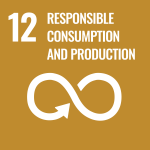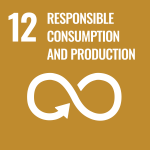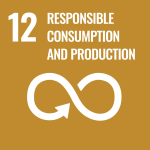Zero Waste Progress
Discover what Concordia is doing to achieve its 2025 zero waste targets.
WASTE MANAGEMENT BEST PRACTICES
Target: Bring waste performance to a competitive level, based on comparison with top performing universities, by continuing to implement best practice initiatives
Status
- In progress
Efforts supporting this target
- Waste bin requests: 23 waste bin requests were fulfilled.
- Zero Waste Event Services: 153 requests were fulfilled, serving over 14,000 attendees with over 30,000 loaned reusable dishware items.
- Zero Waste Offices: Concordia has eliminated desk-side trashbins in favour of cenralized waste-sorting station in kitchenettes and other commonly accessible areas. The project has increased waste diversion rates and encourages employee participation in composting and recycling.
- Residence Reclaimathon: Surplus items from residence were donated to CUCCR during move-out. Clothes were donated internally to the International Student Office as well to community organizations like Dans la Rue, Native Womens’ shelter, and Resilience Montreal. A total of 3 tonnes of materials were salvaged and redistributed with the help of our volunteers, who dedicated a collective 186 volunteer hours.
- 2023 Waste Audit: Four Student Sustainability Ambassadors collaborated with Facilities Management and the Office of Sustainability to implement and analyze how effectively Concordia’s available waste sorting is used by the community and provide recommendations for improvement.
Calls to Action
- Have you noticed an area near you that needs a waste bin? Request one today.
- Read the 2023 Waste Audit report
- Receive recognition for your efforts through the Sustainable Event Program
- Want to learn more about zero-waste best practices for your office and teach your colleagues about it? Register to become an employee sustainability ambassador
Related Sustainable Development Goal

EXPLORE INNOVATIVE SOLUTIONS TO WASTE REDUCTION & DIVERSION
Target: Nudge waste reduction and diversion performance beyond best practices and foster an innovative, curriculum, and research-integrated program
Status
- In progress
Efforts supporting this target

Wastescapes
In 2020, Professors Liz Miller and MJ Thompson initiated WasteScapes with a field course entitled “WasteScapes”. With environmental justice as a key critical lens, they proposed a series of bike or walking tours to explore the many scales of waste from individual to institutional, from local to global, and to consider the role of policy and governance in addressing the complex and inevitable place of waste in our lives. WasteScapes has evolved to include three elements: a for-credit field course offered in 2020 and 2021; tour events offered to the Concordia community in 2021 and 2023; and an app available to individuals as well as in combination with course materials to other educators.

17 Stations Interactive Waste Sorting Minigame
The Next Gen Cities Institute and CERC Smart Cities development team created a waste sorting minigame in collaboration with Concordia’s Zero Waste Program team. Players exploring the CITYplayer virtual world, which simulates Concordia’s downtown campus, are invited to sort litter into the correct bins, racing against the clock to earn a high score. The CITYplayer game and trash sorting minigame were featured at the 17 Stations interactive exhibition and discussion at the 4th space.

Delegation to UNEP
A delegation of 6 students and volunteers with the CP3 (Concordia Precious Plastics Project) and CEED Concordia (Community Empowerment Education Development) attended the United Nations session to develop an international legally binding instrument on plastic pollution in Ottawa as observers, from April 22nd to the 29th. The group was able to observe valuable discussions, debates, and information sessions on the urgent state of plastic pollution and the global challenges to curbing plastic waste. The trip was funded thanks to contributions by the Dean of Students, CCSL, VP Services and Sustainability, and SHIFT.
- Beyond Waste: Innovations in Plastic Upcycling: Zero Waste Concordia and the Office of Sustainability hosted a panel of local and international plastics recycling and upcycling practitioners, including Takataka Plastics from Uganda, CEED Concordia, Concordia Precious Plastics (CP3), and Concordia University Centre for Creative Reuse (CUCCR). The discussion centered around themes and shared challenges like local versus scaled-up impacts, financing, and community engagement.
- Smart waste bins: Concordia is collaborating with a smart waste bin company on research to embed their system with computer vision to detect items being disposed and provide on-the-spot sorting instructions to campus visitors.
- Waste Invaders waste-sorting game: Designed and built by a student Sustainability Ambassador, this classic arcade game has been updated to teach players the basics of waste sorting at Concordia.
Calls to Action
- Visit Concordia’s Digitizing Waste webpage to learn more about the ways in which Concordia collaborates with researchers and students to bring waste management and circular economy into the digital transformation age through living laboratory projects on campus.
- Download the WasteScapes app and visit important sites of wastescapes in Montreal
Read the UNEP plastics negotiations report from the Concordia delegation
- Play the Waste Invaders video game located on the 7th floor of Hall building and learn how to sort your waste at Concordia!
Related Sustainable Development Goal

UPSTREAM INTERVENTIONS & CIRCULAR ECONOMY
Target: Continue to support and expand reuse initiatives and create procurement policies & procedures favoring waste reduction and reuse
Status
- In progress
Efforts supporting this target
- Sustainable procurement: Effective December 2021, a sustainability clause was included within the new Procurement Policy (CFO-20), incorporating principles of sustainable procurement and social responsibility. In 2023-24, waste considerations were integrated into public tenders 26 times (Recycled, refurbished, or used materials were factored into 4 public tenders; reusable and recyclable materials into 5 public tenders; eco-responsible packaging into 6 public tenders; eco-responsible end-of-life recuperation into 5 public tenders; and improved useful lifespan into 6 public tenders).
- Zero Waste Store: Through the support of Financial Services, an online Zero Waste Store was piloted featuring refurbished electronics from CRT, small furniture items, and recycled plastic items created by CP3. The project has been paused pending the exploration of new partnerships that could streamline the addition of new items to the store.
- Concordia Centre for Creative Reuse (CUCCR): In 2023-24, CUCCR registered 1040 new members and received 3501 visitors. Approximately 8 metric tonnes of materials were diverted from the waste stream, saving our community a collective $100,552. Volunteers dedicated a collective 280 hours to the program.
- Concordia Re-tech (CRT): In collaboration with IITS and Zero Waste Concordia (formerly in Facilities Management, now located within the Office of Sustainability), Concordia Re-Tech was launched, collecting surplus electronics decommissioned by IITS, including computers, monitors, and peripherals. The project provides an opportunity for volunteers to learn how to repair electronics and items are made available either for free or for a low cost on the Zero Waste Store. The project has achieved the following impact to date:


